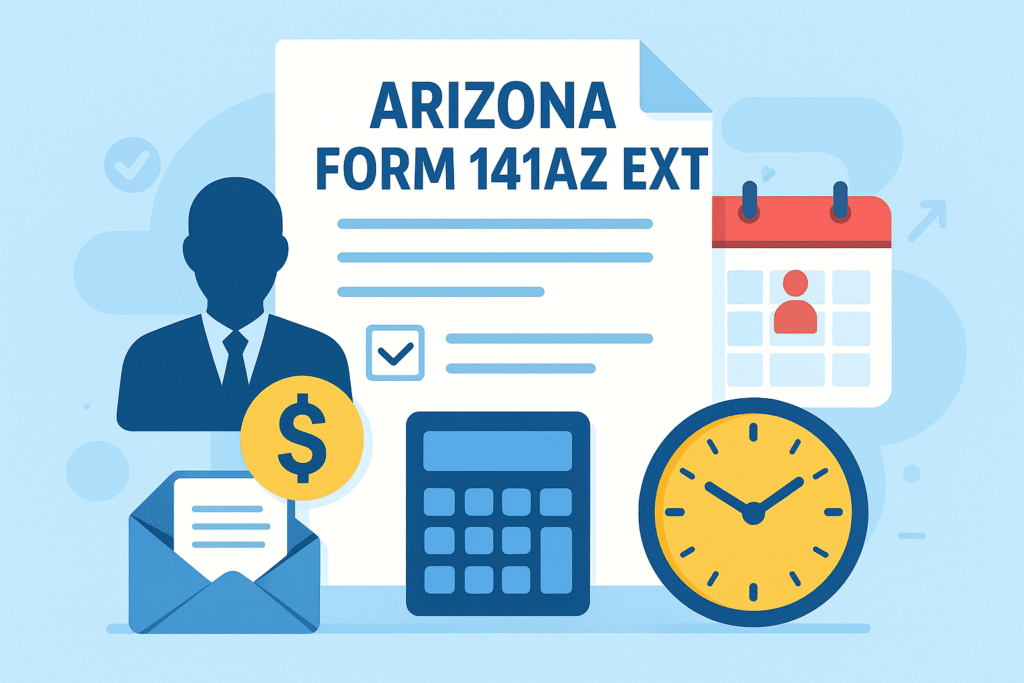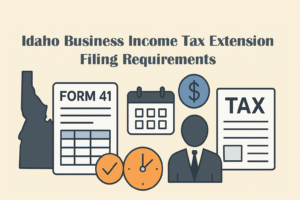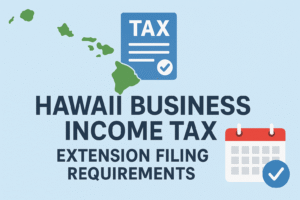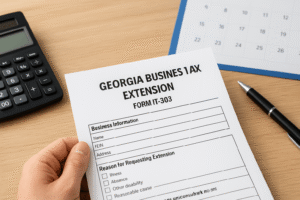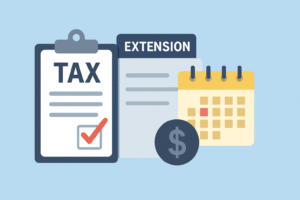When fiduciaries such as estates or trusts require more time to file their Arizona income tax return, the Arizona Department of Revenue (ADOR) provides an option — Form 141AZ EXT. This form allows additional time to submit Form 141AZ, the Arizona Fiduciary Income Tax Return. However, it’s important to understand that this is only an extension to file, not to pay.
This guide explains everything fiduciaries need to know about Form 141AZ EXT, including its purpose, filing eligibility, deadlines, form completion process, and how it differs from corporate or partnership extensions.
What Is the Purpose of Form 141AZ EXT?
Arizona Form 141AZ EXT is an Application for Automatic Extension of Time to File a Fiduciary Income Tax Return.
It provides estates and trusts with up to six (6) months of additional time to file their Arizona Form 141AZ after the original due date.
However, this extension does not grant additional time to pay any taxes owed. Fiduciaries must estimate and pay their tax liability by the original due date of the return to avoid interest and penalties.
In short:
- Purpose: To obtain extra time to file a fiduciary return (Form 141AZ)
- Does not extend payment due date
- Prevents late filing penalty if filed and paid correctly
Who Must File Form 141AZ EXT?
You must file Form 141AZ EXT if:
- You are the fiduciary (executor, trustee, or administrator) of an estate or trust required to file Arizona Form 141AZ, and
- You cannot file the return by the original due date, and
- You owe tax that will not be fully paid by the return’s due date.
However, you do not need to file Form 141AZ EXT if:
- You don’t owe any additional tax, and
- You timely file a federal Form 7004 (Application for Automatic Extension of Time to File Certain Business Income Tax, Information, and Other Returns) for the same fiduciary return.
In such cases, Arizona will automatically grant a six-month extension without the need to file Form 141AZ EXT separately.
When Is the Deadline to File Form 141AZ EXT?
For calendar-year fiduciaries, Form 141AZ is typically due on April 15 following the close of the tax year.
To receive an extension:
- Form 141AZ EXT must be filed by the original due date of the return (April 15 for calendar-year filers).
- If approved, the extension grants an additional six months, moving the filing deadline to October 15.
For fiscal-year fiduciaries, the form is due on or before the 15th day of the fourth month after the close of the fiscal year. The extension then moves the deadline six months forward from that date.
Important:
If payment is not made by the original due date, interest and penalties will apply, even if the extension is approved.
How to Complete Form 141AZ EXT (Line-by-Line Instructions)
Completing Form 141AZ EXT correctly ensures your extension is valid and processed efficiently. Below is a detailed, line-by-line walkthrough:
Top Section – Identification Information
- Fiduciary Name and Title: Enter the full legal name and title of the fiduciary responsible for the estate or trust.
- Name of Estate or Trust: Enter the name exactly as shown on the original Form 141AZ.
- Federal Employer Identification Number (EIN): Provide the EIN assigned to the estate or trust.
- Address: Include the complete mailing address, city, state, and ZIP code.
Part 1 – Reason for Filing and Tax Year
- Check the appropriate box to indicate whether this is a calendar year or fiscal year return.
- Enter the beginning and ending dates of the tax year.
Part 2 – Tax Liability and Payment Calculation
- Line 1: Enter the total Arizona fiduciary income tax liability expected for the taxable year.
- Line 2: Enter any Arizona income tax payments made prior to filing this extension (such as withholding or estimated tax payments).
- Line 3: Subtract Line 2 from Line 1.
- If the amount is positive, that’s your balance due.
- If zero or less, you owe no additional payment.
- Line 4: Enter the amount of payment enclosed with this extension (if any).
Make sure to sign and date the form before submission.
How to Pay and File Form 141AZ EXT with the State of Arizona
You can file and pay your fiduciary extension using either of these methods:
1. Electronic Filing
- Fiduciaries can make extension payments electronically through AZTaxes.gov.
- Select the “Make an Individual or Fiduciary Payment” option.
- Choose Fiduciary Extension Payment and follow on-screen steps to complete the transaction.
This is the fastest and most secure method, ensuring timely processing.
2. Paper Filing
If you choose to file by mail:
- Complete Form 141AZ EXT and include your check or money order payable to “Arizona Department of Revenue.”
- Write the EIN and tax year on the payment.
- Mail to:
Arizona Department of Revenue
P.O. Box 29085
Phoenix, AZ 85038-9085
Payments must be postmarked by the original due date of the return.
What Is the Difference Between Form 120/165 EXT and Form 141AZ EXT?
While both Form 120/165 EXT and Form 141AZ EXT serve the same fundamental purpose of extending the time to file Arizona tax returns, they apply to different taxpayer entities.
Form 120/165 EXT is designed for business entities, such as corporations and partnerships, that need additional time to file their corporate (Form 120) or partnership (Form 165) returns. On the other hand, Form 141AZ EXT applies specifically to fiduciaries, such as trustees, executors, and administrators, who are responsible for filing fiduciary income tax returns (Form 141AZ) on behalf of estates or trusts.
Frequently Asked Questions (FAQs)
No. It only extends the time to file the return. Taxes are still due by the original filing deadline.
The extension provides six months of additional time to file.
Interest and penalties will accrue on any unpaid balance, even if the extension is approved.
Yes, provided it’s correctly completed, filed on time, and any required payment is made.
Yes, fiduciaries may e-file the Form 141AZ once the return is ready before the extended deadline.
If you are relying on a federal Form 7004 and no additional payment is due, you don’t need to file Form 141AZ EXT separately.
Final Thoughts
Filing Arizona Form 141AZ EXT ensures fiduciaries have adequate time to prepare accurate fiduciary income tax returns without facing late filing penalties. However, remember that the extension doesn’t delay payment obligations. Paying the estimated tax due on time is critical to avoid unnecessary interest and penalties.
By understanding how and when to file this extension — along with its distinction from business extensions like Forms 120 and 165 — fiduciaries can ensure smooth and compliant tax reporting with the Arizona Department of Revenue.

